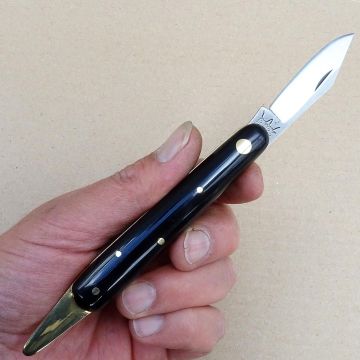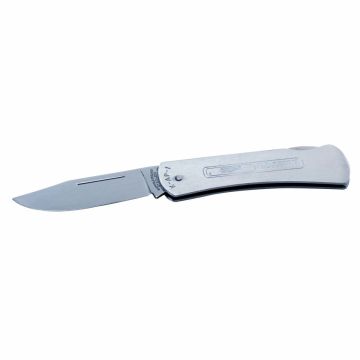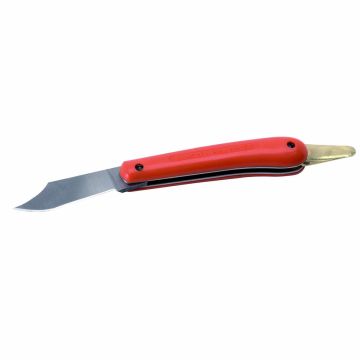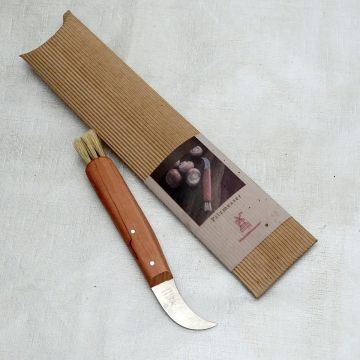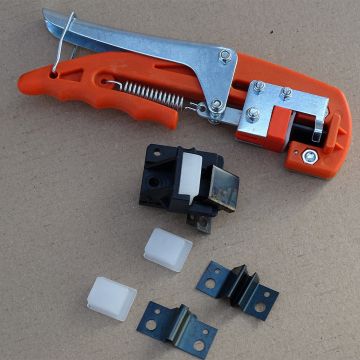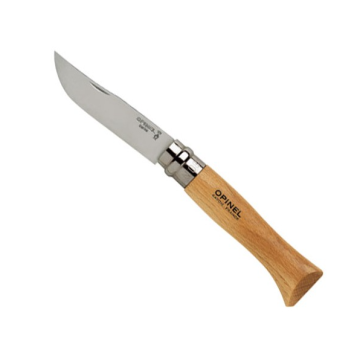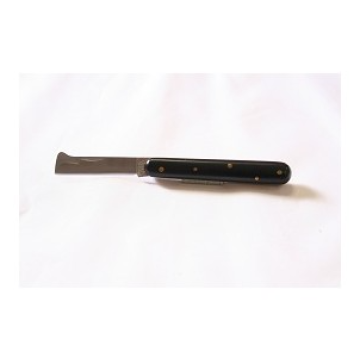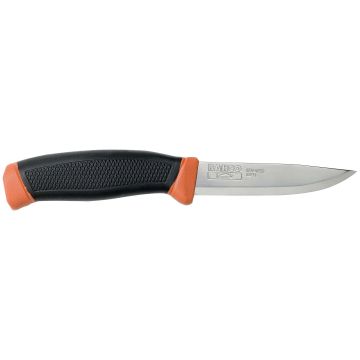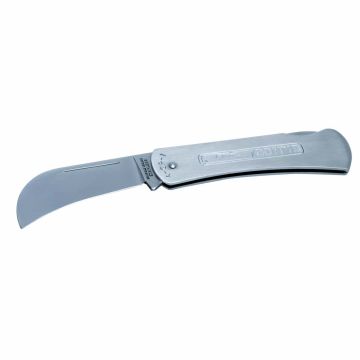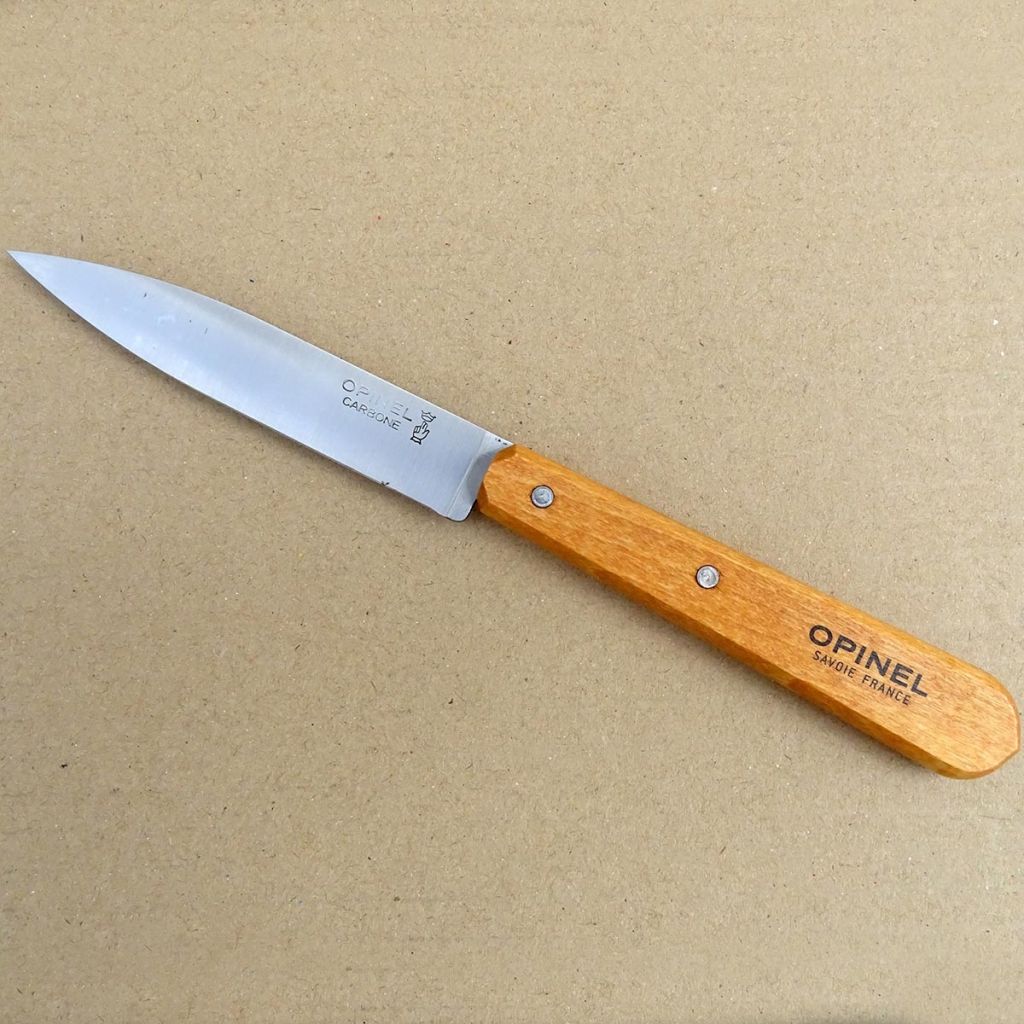

Opinel Vegetable Knife - Carbon Steel Blade
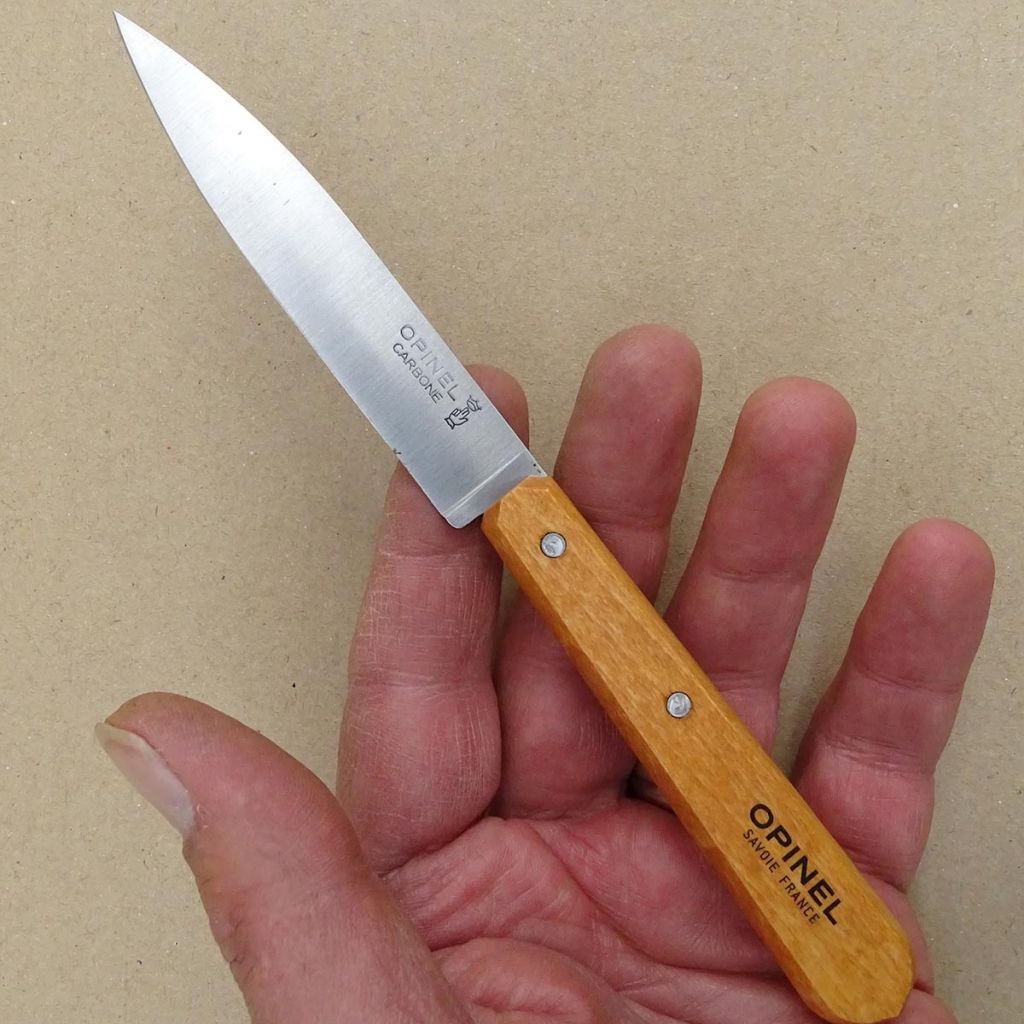

Opinel Vegetable Knife - Carbon Steel Blade
Opinel Vegetable Knife - Carbon Steel Blade
Special offer!
Receive a €20 voucher for any order over €90 (excluding delivery costs, credit notes, and plastic-free options)!
1- Add your favorite plants to your cart.
2- Once you have reached €90, confirm your order (you can even choose the delivery date!).
3- As soon as your order is shipped, you will receive an email containing your voucher code, valid for 3 months (90 days).
Your voucher is unique and can only be used once, for any order with a minimum value of €20, excluding delivery costs.
Can be combined with other current offers, non-divisible and non-refundable.
Home or relay delivery (depending on size and destination)
Schedule delivery date,
and select date in basket
We guarantee the quality of our plants for a full growing cycle, and will replace at our expense any plant that fails to recover under normal climatic and planting conditions.

A useful knife to have in the kitchen at all times. Handy, efficient, and complementary. Its natural beech wood handle will bring a rustic and traditional touch to your kitchen. It is made of martensitic stainless steel which offers high hardness thanks to the addition of nitrogen (0.15%) and superior corrosion resistance due to a high chromium content (16%).
A 10 cm (4in) blade made of stainless steel that ensures a high-quality cut. Varnished beech wood handle to resist dirt and water. Small, handy, and French, it will be very useful in your garden and kitchen for cutting your vegetables.
Ranked in 1985 by the Victoria and Albert Museum among the top 100 designs, exhibited at the Museum of Modern Art in New York, the Opinel is one of the most famous French knives. It was created in 1890 by Joseph Opinel, who was only 18 years old at the time, and its success has never waned since. By 1897, the range was complete with its 12 sizes. The brand with the “crowned hand” logo was registered in 1909.
The modified 12C27 stainless steel from Sandvik, developed for Opinel, is renowned for its sharpness and ease of maintenance. Stainless steel that can undergo heat treatment to achieve good hardness is called martensitic. It has a carbon content of at least 0.40%, which allows for a very satisfactory sharpness without being prone to corrosion. Blade hardness is 57-58 HRC. The traditional Opinel blade is called a Yatagan blade. Its shape is inspired by a Turkish saber, with a raised point. The blade is ground with an exclusive convex profile that guarantees the robustness of the blade and allows for efficient sharpening.
Beech wood is the most commonly used wood for Opinel handles. Sourced from French forests, it is hard, resistant, and easy to work with. With a homogeneous appearance, its light color varies from yellow to pink. It is recognizable by the presence of many small dark lines. The handle is varnished for better protection against moisture and dirt.
Invented in 1955 by Marcel Opinel, the Virobloc safety ring is fitted on all folding knives from N°06 onwards. Made of stainless steel, the Virobloc consists of two parts: a fixed part and a sliding part. In addition to locking the blade in the open position (for safety during use), it is now possible to lock the blade in the closed position (for safety during transport).
Technical features
Tips
Other Knives and grafting knives
View all →This item has not been reviewed yet - be the first to leave a review about it.
Haven't found what you were looking for?
Hardiness is the lowest winter temperature a plant can endure without suffering serious damage or even dying. However, hardiness is affected by location (a sheltered area, such as a patio), protection (winter cover) and soil type (hardiness is improved by well-drained soil).

Photo Sharing Terms & Conditions
In order to encourage gardeners to interact and share their experiences, Promesse de fleurs offers various media enabling content to be uploaded onto its Site - in particular via the ‘Photo sharing’ module.
The User agrees to refrain from:
- Posting any content that is illegal, prejudicial, insulting, racist, inciteful to hatred, revisionist, contrary to public decency, that infringes on privacy or on the privacy rights of third parties, in particular the publicity rights of persons and goods, intellectual property rights, or the right to privacy.
- Submitting content on behalf of a third party;
- Impersonate the identity of a third party and/or publish any personal information about a third party;
In general, the User undertakes to refrain from any unethical behaviour.
All Content (in particular text, comments, files, images, photos, videos, creative works, etc.), which may be subject to property or intellectual property rights, image or other private rights, shall remain the property of the User, subject to the limited rights granted by the terms of the licence granted by Promesse de fleurs as stated below. Users are at liberty to publish or not to publish such Content on the Site, notably via the ‘Photo Sharing’ facility, and accept that this Content shall be made public and freely accessible, notably on the Internet.
Users further acknowledge, undertake to have ,and guarantee that they hold all necessary rights and permissions to publish such material on the Site, in particular with regard to the legislation in force pertaining to any privacy, property, intellectual property, image, or contractual rights, or rights of any other nature. By publishing such Content on the Site, Users acknowledge accepting full liability as publishers of the Content within the meaning of the law, and grant Promesse de fleurs, free of charge, an inclusive, worldwide licence for the said Content for the entire duration of its publication, including all reproduction, representation, up/downloading, displaying, performing, transmission, and storage rights.
Users also grant permission for their name to be linked to the Content and accept that this link may not always be made available.
By engaging in posting material, Users consent to their Content becoming automatically accessible on the Internet, in particular on other sites and/or blogs and/or web pages of the Promesse de fleurs site, including in particular social pages and the Promesse de fleurs catalogue.
Users may secure the removal of entrusted content free of charge by issuing a simple request via our contact form.
The flowering period indicated on our website applies to countries and regions located in USDA zone 8 (France, the United Kingdom, Ireland, the Netherlands, etc.)
It will vary according to where you live:
- In zones 9 to 10 (Italy, Spain, Greece, etc.), flowering will occur about 2 to 4 weeks earlier.
- In zones 6 to 7 (Germany, Poland, Slovenia, and lower mountainous regions), flowering will be delayed by 2 to 3 weeks.
- In zone 5 (Central Europe, Scandinavia), blooming will be delayed by 3 to 5 weeks.
In temperate climates, pruning of spring-flowering shrubs (forsythia, spireas, etc.) should be done just after flowering.
Pruning of summer-flowering shrubs (Indian Lilac, Perovskia, etc.) can be done in winter or spring.
In cold regions as well as with frost-sensitive plants, avoid pruning too early when severe frosts may still occur.
The planting period indicated on our website applies to countries and regions located in USDA zone 8 (France, United Kingdom, Ireland, Netherlands).
It will vary according to where you live:
- In Mediterranean zones (Marseille, Madrid, Milan, etc.), autumn and winter are the best planting periods.
- In continental zones (Strasbourg, Munich, Vienna, etc.), delay planting by 2 to 3 weeks in spring and bring it forward by 2 to 4 weeks in autumn.
- In mountainous regions (the Alps, Pyrenees, Carpathians, etc.), it is best to plant in late spring (May-June) or late summer (August-September).
The harvesting period indicated on our website applies to countries and regions in USDA zone 8 (France, England, Ireland, the Netherlands).
In colder areas (Scandinavia, Poland, Austria...) fruit and vegetable harvests are likely to be delayed by 3-4 weeks.
In warmer areas (Italy, Spain, Greece, etc.), harvesting will probably take place earlier, depending on weather conditions.
The sowing periods indicated on our website apply to countries and regions within USDA Zone 8 (France, UK, Ireland, Netherlands).
In colder areas (Scandinavia, Poland, Austria...), delay any outdoor sowing by 3-4 weeks, or sow under glass.
In warmer climes (Italy, Spain, Greece, etc.), bring outdoor sowing forward by a few weeks.






























